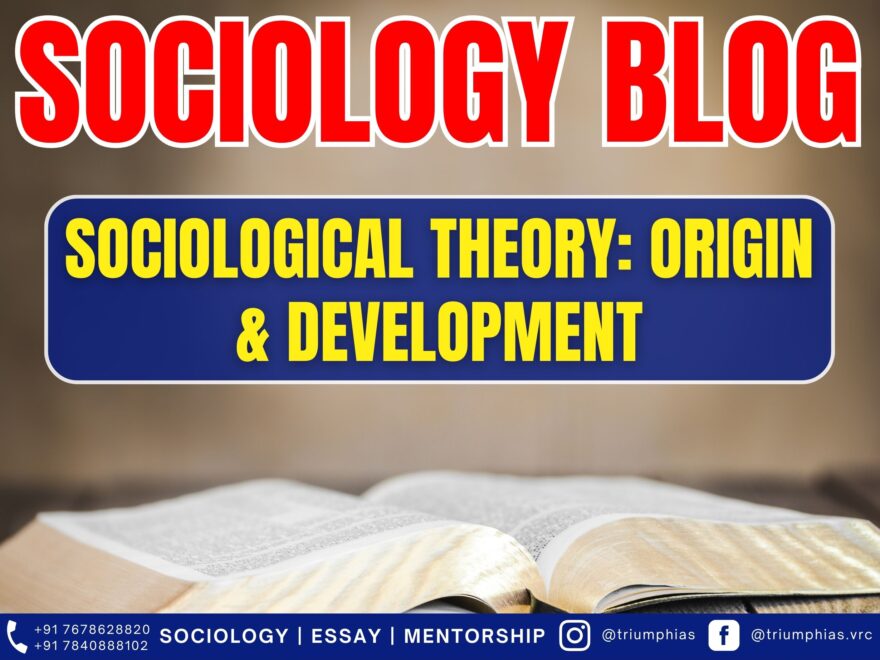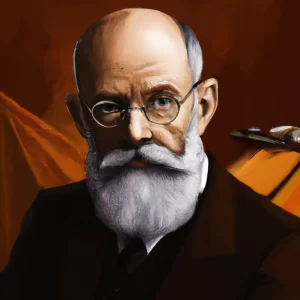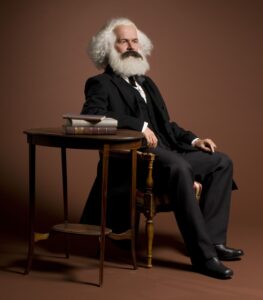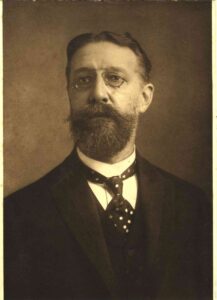Sociological Theory: Origin & Development
(Relevant for Sociology Optional for Civil Services Examination)
by, Vikash Ranjan
(Author, Fundamentals of Sociology & Applied Sociology)
#8586861046
Sociological Theory: Origin & Development
Like the subjects it studies, sociology is itself a social product. Sociology first emerged in western Europe during the eighteenth and nineteenth centuries. In this period, the political and economic systems of Europe were rapidly changing. Monarchy, the rule of society by kings and queens, was disappearing, and new ways of thinking were emerging. Religion as the system of authority and law was giving way to scientific authority. At the same time, capitalism grew. Contact between different societies increased, and worldwide economic markets developed. The traditional ways of the past were giving way to a new social order. The time was ripe for a new understanding.
The Influence of the Enlightenment
The Enlightenment in eighteenth- and nineteenth century Europe had an enormous influence on the development of modern sociology. Also known as the Age of Reason, the Enlightenment was characterized by faith in the ability of human reason to solve society’s problems. Intellectuals believed that there were natural laws and processes in society to be discovered and used for the general good. Modern science was gradually supplanting traditional and religious explanationsfor natural phenomena with theories confirmed byexperiments.
The earliest sociologists promoted a vision of sociology grounded in careful observation. Auguste Comte(1798–1857), a French philosopher who coined the term sociology, believed that just as science had discovered the laws of nature, sociology could discover the laws of human social behavior and thus help solve society’s problems. This approach is called positivism, a system of thought still prominent today, in which scientific observation and description is considered the highest formof knowledge, as opposed to, say, religious dogma orpoetic inspiration. The modern scientific method, which guides sociological research, grew out of positivism.
Alexis de Tocqueville (1805–1859), a French citizen, traveled to the United States as an observer beginning in 1831. Tocqueville thought that democratic values and the belief in human equality positively influenced American social institutions and transformed personal relationships. Less admiringly, he felt that in the United States the tyranny of kings had been replaced by the tyranny of the majority. He was referring to the ability of a majority to impose its will on everyone else in a democracy. Tocqueville also felt that, despite the emphasis on individualism in American culture, Americans had little independence of mind, making them self-centered and anxious about their social class position (Collins and Makowsky 1972).
Another early sociologist is Harriet Martineau(1802–1876). Like Tocqueville, Martineau, a British citizen, embarked on a long tour of the United States in1834. She was fascinated by the newly emerging culture in the United States. Her book Society in America (1837)is an analysis of the social customs that she observed. This important work was overlooked for many years, probably because the author was a woman. It is now recognized as a classic. Martineau also wrote the first sociological methods book, How to Observe Morals and Manners (1838), in which she discussed how to observe behavior when one is a participant in the situation being studied.
Classical Sociological Theory
Of all the contributors to the development of sociology, the giants of the European tradition were Emile Durkheim, Karl Marx, and Max Weber. They are classical thinkers because the ideas they offered more than 150 years ago continue to influence our understanding of society, not just in sociology but in other fields as well (such as political science and history).
Emile Durkheim
During the early academic career of the Frenchman Emile Durkheim (1858–1917), France was in the throes of great political and religious upheaval. Anti-Semitism (hatred of Jews) was rampant. Durkheim, himself Jewish, was fascinated by how the public degradation of Jews by non-Jews seemed to calm and unify a large segment of the divided French public. Durkheim later wrote that public rituals have a special purpose in society. Rituals create social solidarity, referring to the bonds that link the members of a group. Some of Durkheim’s most significant works explore what forces hold society together and make it stable.
According to Durkheim, people in society are glued together by belief systems. The rituals of religion and other institutions symbolize and reinforce the sense of belonging. Public ceremonies create a bond between people in a social unit. Durkheim thought that by publicly punishing people, such rituals sustain moral cohesion in society.
Durkheim also viewed society as an entity larger than the sum of its parts. He described this as society sui generis (which translates as “thing in itself”), meaning that society is a subject to be studied separately from the sum of the individuals who compose it. Society is external to individuals, yet its existence is internalized in people’s minds—that is, people come to believe what society expects them to believe. Durkheim conceived of society as an integrated whole—each part contributing to the overall stability of the system. His work is the basis for functionalism, an important theoretical perspective.
One contribution from Durkheim was his conceptualization of the social facts. Durkheim created the term social facts to indicate those social patterns that are external to individuals. Things such as customs and social values exist outside individuals, whereas psychological drives and motivation exist inside people. Social facts, therefore, are the proper subject of sociology; they are its reason for being.
A striking illustration of this principle was Durkheim’s study of suicide. He analyzed rates of suicide in a society, as opposed to looking at individual (psychological) causes of suicide. He showed that suicide rates varied according to how clear the norms and customs of the society were, whether the norms and customs were consistent with each other and not contradictory. Anomie (the breakdown of social norms) exists where norms were either grossly unclear or contradictory; the suicide rates were higher in such societies or such parts of a society. It is important to note that this condition is in society—external to individuals, but felt by them. In this sense, such a condition is truly societal.
Durkheim held that social facts, though they exist outside individuals, nonetheless pose constraints on individual behavior. Durkheim’s major contribution was the discovery of the social basis of human behavior. He proposed that society could be known through the discovery and analysis of social facts. This is the central task of sociology.
Karl Marx
It is hard to imagine another scholar who has had as much influence on intellectual history as has Karl Marx (1818–1883). Along with his collaborator, Friedrich Engels, Marx not only changed intellectual history but also world history.
Marx’s work was devoted to explaining how capitalism shaped society. He argued that capitalism is an economic system based on the pursuit of profit and the sanctity of private property. Marx used a class analysis to explain capitalism, describing capitalism as a system of relationships among different classes, including capitalists (also known as the bourgeois class), the proletariat (or working class), the petty bourgeoisie (small business owners and managers), and the lumpenproletariat (those “discarded” by the capitalist system, such as the homeless). In Marx’s view, profit, the goal of capitalist endeavors, is produced through the exploitation of the working class. Workers sell their labor in exchange for wages, and capitalists make certain that wages are worth less than the goods the workers produce. The difference in value is the profit of the capitalist. In the Marxist view, the capitalist class system is inherently unfair because the entire system rests on workers getting less than they give.
Marx thought that the economic organization of society was the most important influence on what humans think and how they behave. He found that the beliefs of the common people tended to support the interests of the capitalist system, not the interests of the workers themselves. Why? The answer is that the capitalist class controls the production of goods and the production of ideas. It owns the publishing companies, endows the universities where knowledge is produced, and controls information industries—thus shaping what people think.
Marx considered all of society to be shaped by economic forces. Laws, family structures, schools, and other institutions all develop, according to Marx, to suit economic needs under capitalism. Like other early sociologists, Marx took social structure as his subject rather than the actions of individuals. It was the system of capitalism that dictated people’s behavior. Marx saw social change as arising from tensions inherent in a capitalist system—the conflict between the capitalist and working classes. Marx’s ideas are often misperceived by students because communist revolutionaries throughout the world have claimed Marx as their guiding spirit. It would be naive to reject his ideas solely on political grounds. Much that Marx predicted has not occurred— for instance, he claimed that the “laws” of history made a worldwide revolution of workers inevitable, and this has not happened. Still, he left us an important body of sociological thought springing from his insight that society is systematic and structural and that class is a fundamental dimension of society that shapes social behavior.
Max Weber
Max Weber (1864–1920; pronounced “vayber”) was greatly influenced by and built upon Marx’s work. Whereas Marx saw economics as the basic organizing element of society, Weber theorized that society had three basic dimensions: political, economic, and cultural. According to Weber, a complete sociological analysis must recognize the interplay between economic, political, and cultural institutions (Parsons 1947). Weber is credited with developing a multidimensional analysis of society that goes beyond Marx’s more one-dimensional focus on economics.
Weber also theorized extensively about the relationship of sociology to social and political values. He did not believe there could be a value-free sociology because values would always influence what sociologists considered worthy of study. Weber thought sociologists should acknowledge the influence of values so that ingrained beliefs would not interfere with objectivity. Weber professed that the task of sociologists is to teach students the uncomfortable truth about the world. Faculty should not use their positions to promote their political opinions, he felt; rather, they have a responsibility to examine all opinions, including unpopular ones, and use the tools of rigorous sociological inquiry to understand why people believe and behave as they do.
An important concept in Weber’s sociology is verstehen (meaning “understanding” and pronounced “vershtayen”). Verstehen, a German word, refers to understanding social behavior from the point of view of those engaged in it. Weber believed that to understand social behavior, one had to understand the meaning that a behavior had for people. He did not believe sociologists had to be born into a group to understand it (in other words, he didn’t believe “it takes one to know one”), but he did think sociologists had to develop some subjective understanding of how other people experience their world. One major contribution from Weber was the definition of social action as a behavior to which people give meaning, such as placing a bumper sticker on your car that states pride in U.S. military troops.

To master these intricacies and fare well in the Sociology Optional Syllabus, aspiring sociologists might benefit from guidance by the Best Sociology Optional Teacher and participation in the Best Sociology Optional Coaching. These avenues provide comprehensive assistance, ensuring a solid understanding of sociology’s diverse methodologies and techniques.
META TAGS:
Sociological theory, Enlightenment, classical sociological theory, Emile Durkheim, Karl Marx, Max Weber, social product, positivism, social facts, capitalism, social solidarity, class analysis, verstehen, social action.
Why Vikash Ranjan’s Classes for Sociology?
Proper guidance and assistance are required to learn the skill of interlinking current happenings with the conventional topics. VIKASH RANJAN SIR at TRIUMPH IAS guides students according to the Recent Trends of UPSC, making him the Best Sociology Teacher for Sociology Optional UPSC.
At Triumph IAS, the Best Sociology Optional Coaching platform, we not only provide the best study material and applied classes for Sociology for IAS but also conduct regular assignments and class tests to assess candidates’ writing skills and understanding of the subject.
Choose The Best Sociology Optional Teacher for IAS Preparation?
At the beginning of the journey for Civil Services Examination preparation, many students face a pivotal decision – selecting their optional subject. Questions such as “which optional subject is the best?” and “which optional subject is the most scoring?” frequently come to mind. Choosing the right optional subject, like choosing the best sociology optional teacher, is a subjective yet vital step that requires a thoughtful decision based on facts. A misstep in this crucial decision can indeed prove disastrous.
Ever since the exam pattern was revamped in 2013, the UPSC has eliminated the need for a second optional subject. Now, candidates have to choose only one optional subject for the UPSC Mains, which has two papers of 250 marks each. One of the compelling choices for many has been the sociology optional. However, it’s strongly advised to decide on your optional subject for mains well ahead of time to get sufficient time to complete the syllabus. After all, most students score similarly in General Studies Papers; it’s the score in the optional subject & essay that contributes significantly to the final selection.
“A sound strategy does not rely solely on the popular
Opinion of toppers or famous YouTubers cum teachers.”
It requires understanding one’s ability, interest, and the relevance of the subject, not just for the exam but also for life in general. Hence, when selecting the best sociology teacher, one must consider the usefulness of sociology optional coaching in General Studies, Essay, and Personality Test.
The choice of the optional subject should be based on objective criteria, such as the nature, scope, and size of the syllabus, uniformity and stability in the question pattern, relevance of the syllabic content in daily life in society, and the availability of study material and guidance. For example, choosing the best sociology optional coaching can ensure access to top-quality study materials and experienced teachers. Always remember, the approach of the UPSC optional subject differs from your academic studies of subjects. Therefore, before settling for sociology optional, you need to analyze the syllabus, previous years’ pattern, subject requirements (be it ideal, visionary, numerical, conceptual theoretical), and your comfort level with the subject.
This decision marks a critical point in your UPSC – CSE journey, potentially determining your success in a career in IAS/Civil Services. Therefore, it’s crucial to choose wisely, whether it’s the optional subject or the best sociology optional teacher. Always base your decision on accurate facts, and never let your emotional biases guide your choices. After all, the search for the best sociology optional coaching is about finding the perfect fit for your unique academic needs and aspirations.
To master these intricacies and fare well in the Sociology Optional Syllabus, aspiring sociologists might benefit from guidance by the Best Sociology Optional Teacher and participation in the Best Sociology Optional Coaching. These avenues provide comprehensive assistance, ensuring a solid understanding of sociology’s diverse methodologies and techniques. Sociology, Social theory, Best Sociology Optional Teacher, Best Sociology Optional Coaching, Sociology Optional Syllabus.
Best Sociology Optional Teacher, Sociology Syllabus, Sociology Optional, Sociology Optional Coaching, Best Sociology Optional Coaching, Best Sociology Teacher, Sociology Course, Sociology Teacher, Sociology Foundation, Sociology Foundation Course, Sociology Optional UPSC, Sociology for IAS,
Follow us :



Find More Blogs…
| Compare and contrast Karl Marx’s and Max weber’s | Karl Marx- Historical Materialism |
| Talcott Parsons : Social system | Scope of the subject and comparison with other social sciences |







